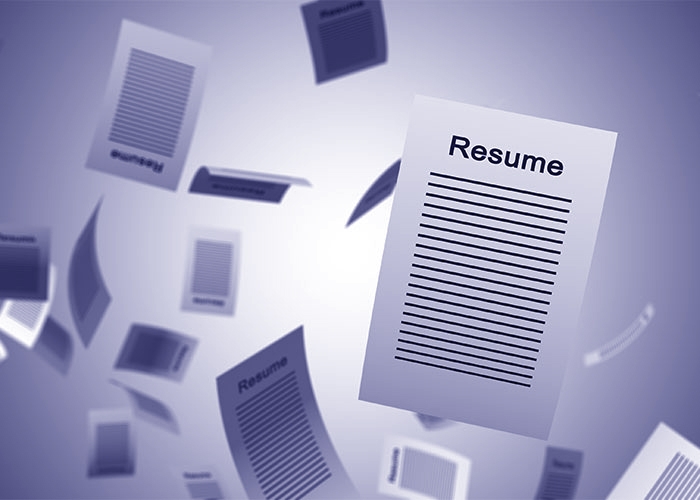
Learn how to use AI to your advantage.
Today, 82% of companies are relying on artificial intelligence (AI) to review resumes, according to Resume Builder. They’re using what’s called an automated applicant tracking system (ATS). This is software that collects the overwhelming number of job applications and resumes employers receive for job openings and screens them, separating the wheat from the chaff.
“Employers are doing this to save themselves time,” says Thea Cerio, director of Rhode Island College’s Career & Life Design Center. “If you have 300 resumes coming in for a position, you don't have time to read them all. Applicant tracking systems pull in the candidates who have certain key words in their resume.”
ATS scans for keywords that match the skills the employer is looking for. This is a way of identifying the most qualified candidates. If those keywords don’t appear, it’s likely your resume will be flushed out of the matrix before a human being ever sees it – even if your skills and experience are actually a perfect fit.
“My advice to students is that applicant tracking systems are meant to weed you out of the applicant pool,” says Cerio. “We are here to help get you in.”
The important thing, she says, is to use AI to your advantage. There are many AI tools that can write your resume for you. They help your resume make it past the tentacles of ATS and into the hands of an employer. However, there are important tips to remember when AI is writing your resume, says Cerio:
- Don’t neglect to read each job posting carefully. Look at the skills they’re looking for and include those skills in your resume. If your resume isn’t speaking to those skills, you’re not going to get past ATS.
- Don’t include skills in your resume that you don’t have. Sometimes an AI-generated resume can exaggerate your skills and experience, making you sound more qualified than you really are.
- Don’t use the same resume for each job posting. Adjust your resume to the job you’re applying for. With each new job posting, copy and paste the job description into your AI tool and let it generate a resume for you, using key words from the posting.
- Never use a word in your resume that you wouldn’t use in real life. If you never use the word ‘indubitably,’ don’t put it in your resume. Make sure it portrays your authentic voice.
- Don’t write a three-page resume. Brevity is important. Keep a master document that you whittle down to the job you’re applying for.
“AI offers tools for both job recruiters and job seekers. The point is to use AI to your advantage,” Cerio underscores. “Your resume has six to seven seconds in front of an employer’s eyes to make an impression. It’s important that you create one that’s going to get you noticed.”

Get help with writing your resume at RIC’s Career & Life Design Center.
